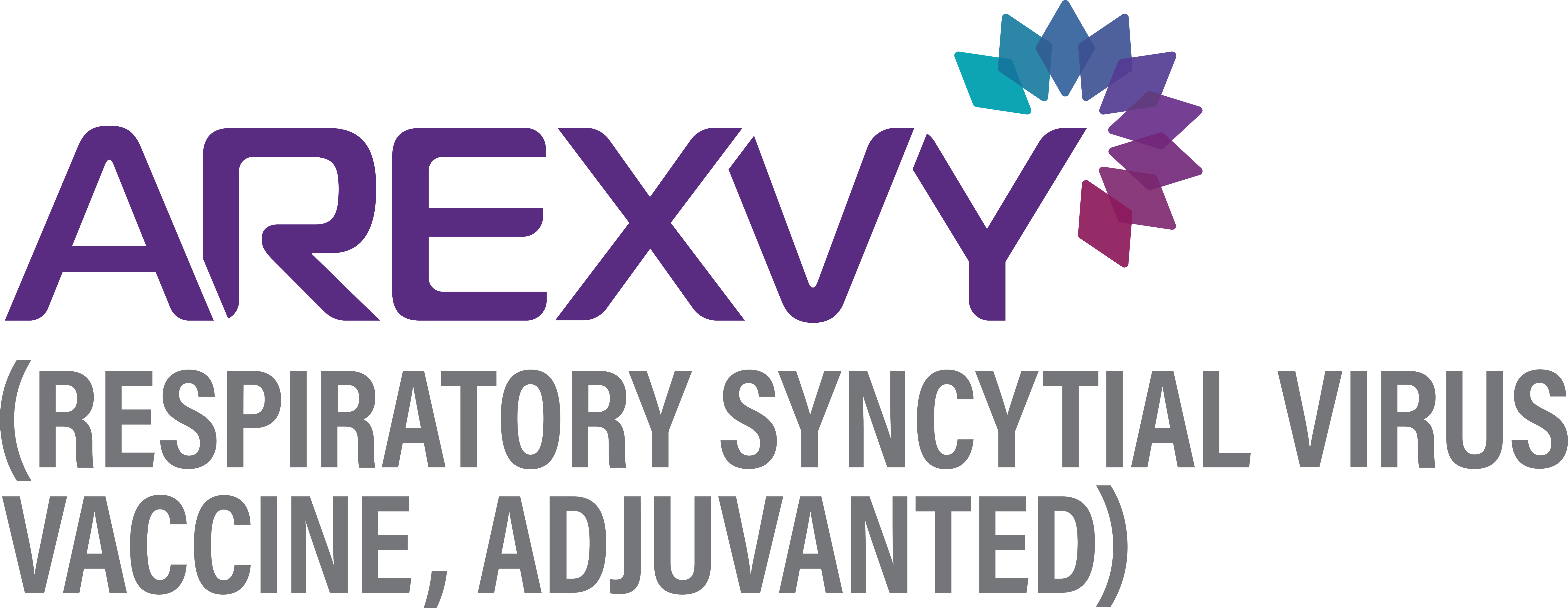Indication & Important Safety Info
Indication
Important Safety Information
Indication
AREXVY is a vaccine indicated for active immunization for the prevention of lower respiratory tract disease (LRTD) caused by respiratory syncytial virus (RSV) in:
- individuals 60 years of age and older;
- individuals 50 through 59 years of age who are at increased risk for LRTD caused by RSV.
Important Safety Information
- AREXVY is contraindicated in anyone with a history of a severe allergic reaction (eg, anaphylaxis) to any component of AREXVY
- The results of a postmarketing observational study suggest an increased risk of Guillain-Barré syndrome during the 42 days following vaccination with AREXVY
- Appropriate medical treatment must be immediately available to manage potential anaphylactic reactions following administration of AREXVY
- Syncope (fainting) may occur in association with administration of injectable vaccines, including AREXVY. Procedures should be in place to avoid injury from fainting
- Immunocompromised persons, including those receiving immunosuppressive therapy, may have a diminished immune response to AREXVY
- In adults 60 years of age and older, the most commonly reported adverse reactions (≥10%) were injection site pain (60.9%), fatigue (33.6%), myalgia (28.9%), headache (27.2%), and arthralgia (18.1%)
- In adults 50 through 59 years of age, the most commonly reported adverse reactions (≥10%) were injection site pain (75.8%), fatigue (39.8%), myalgia (35.6%), headache (31.7%), arthralgia (23.4%), erythema (13.2%), and swelling (10.4%)
- There are no data on the use of AREXVY in pregnant or breastfeeding individuals. AREXVY is not approved for use in persons <50 years of age
- Vaccination with AREXVY may not result in protection of all vaccine recipients
Please see full Prescribing Information.
